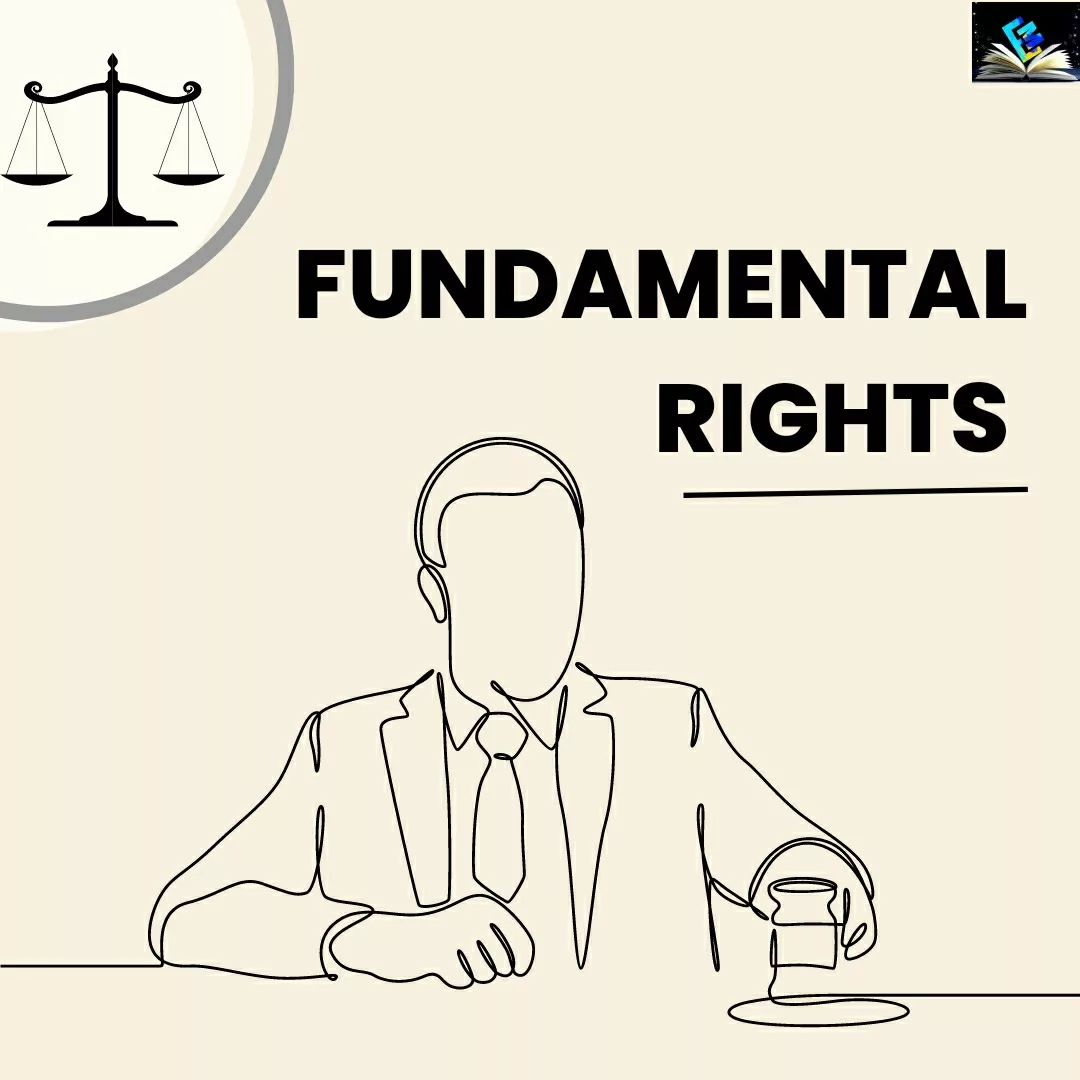
Fundamental Rights | The Basics of Indian Constitution
keywords- fundamental rights, rights, Constitution, freedom, equality
Written By – Tanishka Ranjan
The Indian Constitution protects six fundamental rights. Fundamental Rights are addressed in the Indian Constitution. These fundamental rights are granted to Indian people since the Constitution states, these are inviolable. Human life, integrity, and learning, among other things, all fall under one of six primary fundamental rights.
These rights are called Fundamental as they are essential and natural to the development of human beings. The Fundamental Rights are defined as basic human freedoms that every Indian citizen has the right to enjoy for a proper and harmonious development of personality.
Introduction
Fundamental Rights are a group of rights that have been recognised by a high degree of protection from encroachment. These rights are specifically identified in the constitution, or have been found under due process of law. Articles 12 to 35 contained in Part III of the Constitution deal with Fundamental Rights.
These are essential human rights that are offered to every citizen irrespective of caste, race, creed, place of birth, religion or gender. These are equal to freedoms.
Importance Of These Rights
Law and Order
These rights safeguard citizens from the state and are required for the legal system to exist, rather than the rule of a state or a person. The authorities cannot violate these rights since they are granted to the people by the constitution. The government is entirely accountable to the court and must safeguard these rights.
The first fruit of the liberation struggle
It is that people have forgotten what freedom meant after living under slavery for so long. They are no longer dependent on the whims of the authorities. They were, in that feeling, the first results of the long battle for independence, and they provided a sense of contentment and fulfilment.
Freedom Abstract reasoning
Every Indian person is free to pursue their preferred religion.
Features Of Fundamental Rights
- These Rights are justified : The constitution empowers citizens to take their basic rights to a Supreme Court for strengthening if they are infringed or curtailed.
- Restriction of Fundamental Rights : During National Emergencies, all Fundamental Rights are suspended, except for those provided under Articles 20 and 21.
- Fundamental Rights Restrictions : Fundamental rights might be curtailed during a military regime when martial law is applied or the country is under AFSPA.
List Of Rights
- Right to Equality (Article 14-18)
- EQUALITY BEFORE law and EQUAL PROTECTION of law
- Prohibition of DISCRIMINATION On grounds only of religion, caste, sex, race or place of birth
- Equality of OPPORTUNITIES in matters of public employment
- Prohibition of UNTOUCHABILITY
- Abolition of TITLES, MILITARY and ACADEMIC DISCTINCTIONS are however, exempted
- Right to Freedom (Article 19-22)
- Guarantees the citizens of India the following six fundamentals :
- Freedom of SPEECH and EXPRESSION
- Freedom of ASSEMBLY
- Freedom of form ASSOCIATIONS
- Freedom of MOVEMENT
- Freedom of RESIDENCE and SETTLEMENT
- Freedom of PROFESSION, OCCUPATION, TRADE and BUSINESS
- Protection in respect of CONVICTION for OFFENSES
- Protection of LIFE and PERSONAL LIBERTY
- Protection against ARREST and DETENTION in certain cases
- Right against Exploitation (Article 23-24)
- TRAFFICKING In human beings prohibited
- No CHILD below the age of 14 can be EMPLOYED
- Right to Freedom of Religion (Article 25-28)
- Freedom of CONSCIENCE and free PROFESSION, PRACTICE and PROPAGATION of RELIGION
- Freedom to manage RELIGIOUS AFFAIRS
- Prohibits TAXES on RELIGIOUS grounds
- Freedom as to ATTENDANCE at RELIGIOUS CEREMONIES in certain educational institutions
- Cultural and Educational Rights (Article 29-30)
- Protection of interests of MINORITIES
- Right of minorities to establish and and and ADMINISTER EDUCATIONAL INSTITUTIONS
- Omitted by the 44th AMENDMENT ACT
- Right to Constitutional Remedies (Article 32)
- The right to move the SUPREME COURT in case of their VOILATION ( called soul and heart of the Constitution by BR Ambedkar)
Conclusion
These Rights as incorporated in our constitution form the basis of our existence in the country. Without them being present, living could have been difficult. The fact they are justifiable and thus enforceable by courts make them an instrument of power in the hands of a common man.
for more info visit us! Or mail us at edumoundofficial@gmail.com
view Post/Slide show –






